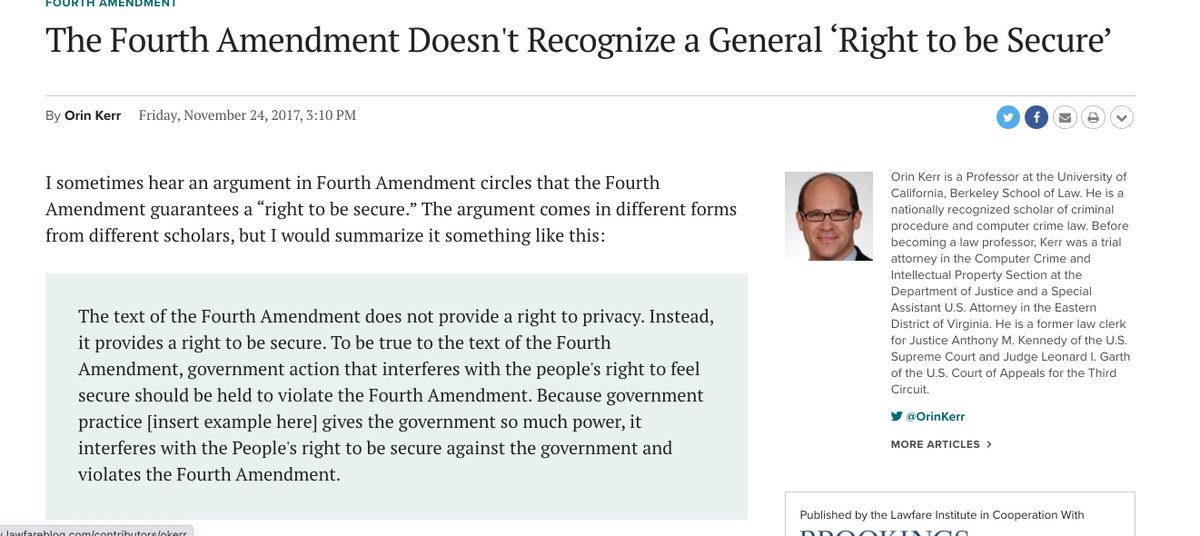
Important and (I think) surprising decision from Mass. SJC: Reviewing body-worn camera footage taken inside suspect's house is a separate 4th Amend search, and it's unlawful to review the footage later for a different reason w/o a warrant.
Thread.
mass.gov/files/document… #N
Thread.
mass.gov/files/document… #N

In the case, officers were asked to enter a home in response to a domestic disturbance by someone who lived there. An officer was wearing a body-worn camera that recorded what the officer saw. The SJC holds that isn't an additional search: The camera saw what the officer saw.
If I follow the facts correctly, the body-worn camera footage was then made available to other officers, including an officer who was already conducting a gang-related investigation into someone at the house. The footage showed the suspected gang member holding a gun.
The Mass SJC holds that accessing the footage for a different reason than the video was taken is a second search. That should to be so, the court says, to limit the power of video cameras: Technology shouldn't be allowed to expand government power that much. It's Orwellian. 



The basic methodology here is what I have called equilibrium-adjustment: As technology expands government power, courts (usually the U.S. Supreme Court, but here a state court) sometimes change the 4A rule to restore the prior level of govt power. harvardlawreview.org/wp-content/upl… 

But this strikes me as a really aggressive form of equilbrium-adjustment: The technology here isn't expanding govt power so much, as the camera only shows what the officer saw, and only for a brief time, during a valid consent search.
And there's a broader puzzle to the reasoning: It wasn't a search to record the video, as the video only captures what the officer saw, but then the police can't look at the video, as it's Orwellian to let the police see . . . what the officer saw? Hmm.
Doctrinally, also not sure how the SJC could square its decision with Illinois v. Andreas, 463 U.S. 765 (1983) -- held, after a place or thing has been searched, can reseal and open later, no second search.
scholar.google.com/scholar_case?c…
scholar.google.com/scholar_case?c…

Looking ahead, will be interesting to see where this goes. If the 4th Amendment now applies to things that were already searched for which there was no REP, but are then stored, we're in for a wild ride. Stay tuned. /end
Oh, and this is an interesting contrasting case from two years ago, NY instead of Mass.
https://twitter.com/OrinKerr/status/1099075952221417477
• • •
Missing some Tweet in this thread? You can try to
force a refresh









